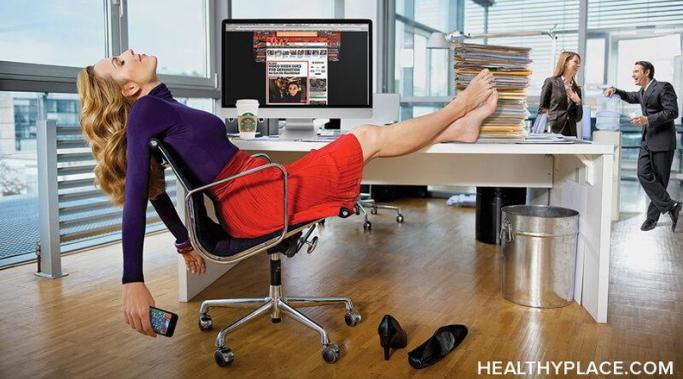Every medical treatment comes with risk. If you have a headache, you could take ibuprofen or you could have a craniotomy looking for brain cancer. One has considerably more risk than the other. (Of course, if you have brain cancer, then the reward could be quite great.)
This means every time you undertake a bipolar treatment knowingly, or not, you weigh the risks vs. rewards in your head. And one of your doctor’s main jobs is to manage that risk vs. reward scenario. Doctors, for example, almost never prescribe barbiturates anymore due to the fairly large risk of addiction. Instead, they prescribe benzodiazepines (or nonbenzodiazepines; very similar) which do not carry such an increased risk. In both cases, they carry the reward of managing anxiety.
But some people don’t want to take benzodiazepines either, because some people tolerate more risk than others.
Coping
I was recently having lunch with a woman who has a series of medical issues, including pain management. One of the medications she is on is oxycodone. She said she would like to get off of the oxycodone but when she has tried, the pain has been unbearable and no other pain medication would touch her pain. So I asked her, "if this medication is working for you and other medications don’t work, then why are you trying to get off of it?"
She said it was because of the stigma attached to that medication.
So I told her something important – you can’t let stigma make your treatment decisions.
Some people believe that being crazy makes you creative (perhaps brilliant) and being creative makes you crazy. Similarly, along this line of logic is that taking medication makes you uncreative and perhaps, un-brilliant.
Well, pish-tosh I say.
I know this seems like an odd question, but I was considering it this morning (in my shower). It is a common problem for people with a mental illness. I have a tendency to avoid showering (really) and I know of others with a mental illness have gone weeks without showering.
So, if all we’re talking about is standing in some warm water, why don’t we want to shower?
I’m not known for my cheery everything’s-going-to-be-OK-puppies-rainbows-lollipops perspective. In fact, I’m against such perspectives. I find them disingenuous, phony, or seriously ill-informed. Save the rose-colored glasses for Sir Elton John, thank-you.
I find smiling, being positive and telling people how great everything is to be just another chore on my list of things to do today when I’m already busy just trying to keep breathing and possibly pay rent.
My brain is a finite resource. Well, the grey, gooey thing in the skull is finite for everyone. But my brain’s ability to think reasonably is a finite resource. When I write it thinks, thinks, thinks, and then there is a dramatic thud.
My brain then stops thinking.
Women are classic “I’m sorry” – ers. We’re taught to say “I’m sorry” from the time we can utter the words. We are the peacekeepers, claiming fault so no one else has to. We have to apologize for emotions because we’re “overemotional.” We have to apologize for our needs because we’re “clingy.” We’re sorry for our behavior, our significant other’s behavior and our children’s behavior. We are simply, sorry.
And most women in 2011 realize this habit is one borne of the past and is no longer relevant in our everyday world. We realize we are not “sorry” at the drop of a hat or a glass of wine spilled by a drunken significant other. We realize there is a time to be sorry and there are times not to be.
Unfortunately for me, I feel like I have to be sorry all the time, for every tear, for every thought, because if I’m not, people will leave.
Naturally, as you've read part one of bipolar disorder and working from home from last week you've already created a workspace at home, created a work routine and put away distractions. Now you're all set for tips on getting actual work done at home, with a mentally ill brain.
I, like many, no longer work in an office; I work from home. My commute each morning goes something like: bed, to the bathroom, to the kitchen, to the couch, to the desk. Barring a traffic jam between my cats and me over the milk, it’s a pretty quick affair. And while working at home does have many advantages for someone with a mental illness, working from home with bipolar disorder also poses its own challenges.
I was asked about how I have continued to work even through major bipolar storms. I found when I wrote about this topic, pages and pages were filled, so we’re splitting it in half. Today is part one: how to work an office job with bipolar disorder.
Some of you know I’ve had office jobs in the tech industry for most of my working career and only recently made a shift. And in those years I’ve had various severities of bipolar disorder. And what I’ve learned is this: working with bipolar disorder comes down to one thing - being stubborn.




